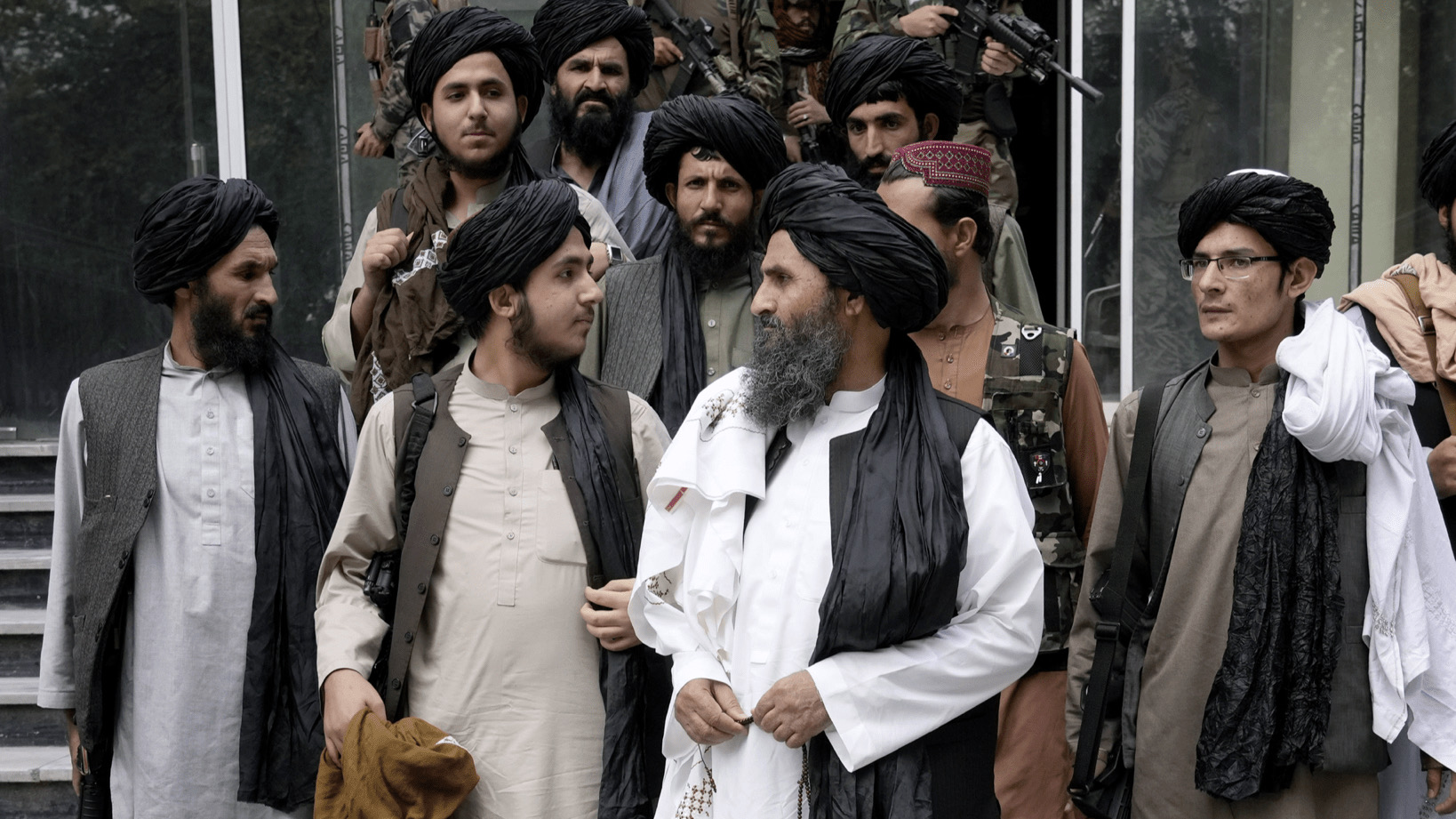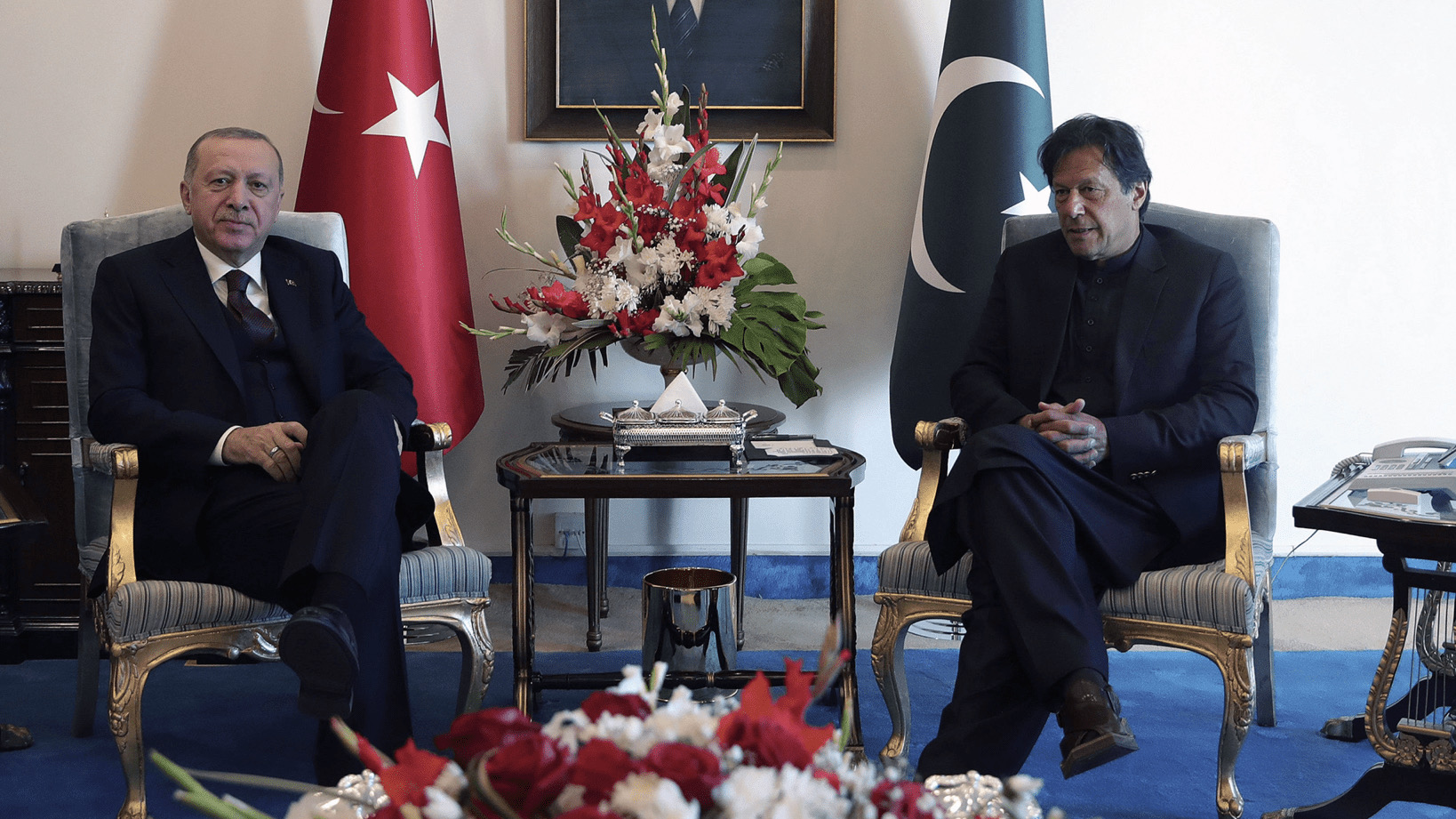
Le service de renseignement pakistanais, l’Inter Services Intelligence (ISI), mène depuis des années une guerre par procuration au Jammu-et-Cachemire (J&K), en aidant et en encourageant le terrorisme par le biais d’organisations terroristes telles que Lashkar-e-Toiba, Jaish-e-Mohammad, Hizbul Mujahideen. L’ISI continue de soutenir cette guerre par procuration, qui est maintenant menée non seulement par les groupes susmentionnés, mais aussi par leurs diverses ramifications comme le Front de résistance, le Front populaire antifasciste , la Jammu Kashmir Gaznavi Force, le Front uni de libération du Jammu et du Cachemire, les Tigres du Cachemire… etc.

Ce n’est un secret pour personne que le corridor économique Chine-Pakistan (CECP) est moins une question d’économie que de stratégie – la stratégie de la Chine. Le vernis de l’économie et du développement n’est maintenu que pour cacher la véritable force motrice qui pousse la Chine à injecter des dizaines de milliards d’euros au Pakistan. La Chine est désormais le plus grand créancier du Pakistan et ce dernier risque de devenir un nouvel exemple de la diplomatie chinoise du piège de la dette. Pour la Chine, le CECP n’a aucune valeur intrinsèque. La valeur réelle des projets réside dans le fait que la Chine n’a pas seulement une empreinte mais un contrôle virtuel sur deux biens immobiliers essentiels – le port de Gwadar et la région du Gilgit-Baltistan.

Après tout ce que le Pakistan a fait pour les Talibans pendant les deux décennies où ils ont combattu la République afghane soutenue par les États-Unis, Islamabad s’attendait légitimement à ce que, cette fois-ci, les Talibans fassent preuve d’une plus grande gratitude et acceptent la liste de souhaits du Pakistan sur toute une série de questions.
Or, depuis que les Talibans ont rétabli leur émirat à Kaboul, il n’y a pas une seule question sur la liste de souhaits du Pakistan qui ait été cochée par les talibans : accepter la ligne Durand comme frontière ? Non ; Expulser les insurgés baloutches ? Non ; démanteler, dégrader et détruire le Tehrik-e-Taliban Pakistan (TTP) ? Non ; tenir l’Inde à l’écart ? Non ; un gouvernement inclusif ? Non ; Permettre l’éducation des filles et donner des droits aux femmes ? Non !

Le Premier ministre pakistanais Imran Khan est arrivé en Russie, pour une visite officielle de deux jours, le jour même où Vladimir Poutine a lancé son attaque contre l’Ukraine. À son arrivée à l’aéroport de Moscou, le leader pakistanais a été filmé en train de s’exclamer joyeusement ‘’À Quel moment je suis venu ! C’est tant d’excitation’’. Cette réaction du leader d’une nation soi-disant démocratique a immédiatement attiré l’attention des médias et a été largement interprétée comme un soutien du Pakistan à la Russie sur la question de l’Ukraine. L’autre interprétation pourrait être le mépris total d’Imran Khan pour les règles de droit qui constituent les fondements de l’ordre international et un manque de compréhension de la gravité de la situation où l’intégrité territoriale d’une nation souveraine a été unilatéralement violée par la Russie.

L’association du Pakistan avec son programme nucléaire et son adhésion aux normes de sécurité nucléaire a toujours été entachée d’un manque de clarté et entourée de mystère, y compris en ce qui concerne l’acquisition même du savoir-faire nucléaire. Dès le début du processus de création d’une arme nucléaire, le Pakistan a pris conscience qu’il n’était pas en mesure de mettre au point un système d’armes par ses propres moyens. De plus, sa volonté d’acquérir une arme nucléaire comportait un élément d’urgence, car il devait suivre le rythme de l’Inde, qui allait de l’avant avec confiance dans son propre programme autonome. Cette urgence, ce désespoir ont obligé le Pakistan à recourir à des moyens contraires à l’éthique pour acquérir des sous-systèmes pour son programme nucléaire auprès de différentes sources.

Le Pakistan a été témoin d’un effondrement rapide de sa machine administrative interne, avec sa police et ses forces de sécurité incapables de contrôler la violence dans tout le pays, engendrée par les partisans du parti islamiste radical, le Tehreek-i-Labbaik Pakistan (TLP), qui a demandé l’éviction de l’ambassadeur de France et l’arrêt des relations commerciales avec la France. Alors que les projecteurs sont braqués sur la triste situation sécuritaire intérieure, le gouvernement étant pris en otage par le TLP, l’état de l’économie et la position diplomatique du pays ne sont pas meilleurs.

Le président chinois Xi Jinping a clairement affiché ses ambitions expansionnistes moins d’un an après avoir pris ses fonctions de secrétaire général du Parti communiste chinois (PCC) lorsqu’il a lancé l’ambitieuse Initiative Ceinture et Route (ICR) qui traverse l’Asie, l’Europe et l’Afrique, reliant des dizaines de pays. Et le premier pays à s’être associé à la Chine, dans le cadre de l’ICR, a été le Pakistan, lorsque le Corridor économique Chine-Pakistan (CECP), d’un montant de 62 milliards de dollars, comprenant un large éventail de projets d’infrastructure, a été signé en grande pompe en 2015. En raison de son étendue, le CECP, souvent désigné au Pakistan comme le projet phare de l’ICR, offre à l’observateur une vue d’ensemble des objectifs réels et des ambitions de Xi Jinping par rapport à cette initiative.

Une kyrielle de drapeaux français et des effigies du président Emmanuel Macron ont été brûlés dans tout le Pakistan ces derniers jours alors que le gouvernement du Premier ministre Imran Khan encourageait les partis politiques, les groupes islamiques radicaux, les avocats et les associations d’étudiants à descendre dans la rue par milliers pour dénoncer l’islamophobie perçue en France.

Le Groupe d’action financière (GAFI), l’organisme mondial de surveillance du blanchiment d’argent et du financement du terrorisme, a tenu une session plénière virtuelle du 21 au 23 octobre. Lors de cette session, les différents pays figurant sur la liste de surveillance du GAFI, classés sur la « liste noire » et « liste grise » de l’organisme, ont été passés en revue. Actuellement, deux pays, la Corée du Nord et l’Iran, figurent sur la « liste noire » et 16 pays, dont le Pakistan, sur la « liste grise » dite de surveillance accrue.

Le 2 septembre, le procès de l’attentat de janvier 2015 contre Charlie Hebdo et l’hyper cacher de la porte de Bagnolet s’est ouvert au tribunal de Paris. Le même jour, le magazine Charlie Hebdo a réimprimé les caricatures du prophète Mahomet qui avaient fait des collaborateurs du magazine las cibles de terroristes islamistes. Interrogé lors de sa visite au Liban, le président français Emmanuel Macron a indiqué qu’il n’interviendrait pas contre la réimpression de ces caricatures, car la presse en France jouit de la liberté d’expression et même de la liberté de blasphémer. Si la déclaration de M. Macron a été bien accueillie en France et dans la majorité des pays du monde, elle a déclenché une vive opposition dans certains pays du monde musulman.
